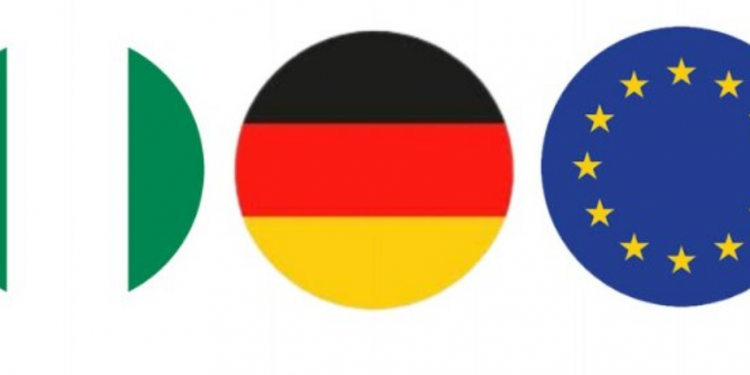The European Union (EU), the Government of Germany, and the Federal Government of Nigeria have launched an €18.3 million initiative to strengthen agricultural value chains, create jobs, and improve food security across the country.
The four-year project, known as the EU-VACE TARED (Transformative Agricultural Systems for Rural Economic Development), will run from October 2024 to September 2028. It will be implemented by the Deutsche Gesellschaft für Internationale Zusammenarbeit (GIZ), in partnership with Nigeria’s Federal Ministry of Budget and National Planning and the Federal Ministry of Agriculture and Food Security. Seven states Cross River, Kano, Kaduna, Kebbi, Ondo, Oyo, and Plateau will serve as implementation hubs.
Speaking at the launch in Abuja, Andrea Ruediger, a GIZ representative, said the project aims to create or enhance 10,000 new jobs while boosting incomes and business turnover by 15 percent. She explained that the programme is expected to reach 25,000 beneficiaries, mostly women and youth, with support in access to finance, value chain development, and post-harvest loss reduction.
“In our access to finance pillar, our aim is to reach at least 15 investors who can then provide funding for 10,000 beneficiaries. Our goal is to develop at least 25 investment proposals, with 15 of them supported,” she said. She added that the project also targets a 15 percent reduction in post-harvest losses and the introduction of climate-smart solutions for wider adoption.
Oladoyin Olawaiye, Deputy Country Director of GIZ Nigeria and ECOWAS, noted that Nigeria’s agriculture sector has long faced challenges ranging from climate change to weak agro-processing frameworks. She said the initiative adopts an inclusive value chain approach to help smallholder farmers and MSMEs increase productivity and resilience.
EU Ambassador to Nigeria, Gautier Mignot, stressed that agriculture remains central to the country’s economic transformation. He pointed out that addressing storage, processing, and finance gaps is critical not only for food security but also for broader socio-economic stability.
Johannes Lehne, Deputy Head of Mission at the German Embassy, described the project as a “strategic investment in Nigeria’s future,” while Minister of State for Agriculture, Aliyu Abdullahi, said it aligns with the federal government’s priorities under the Renewed Hope Agenda.
The project is expected to support smallholder farmers and MSMEs with innovations and skills, improve access to finance and international markets, promote climate-smart practices, and reduce post-harvest losses across the selected value chains over its four-year span.










